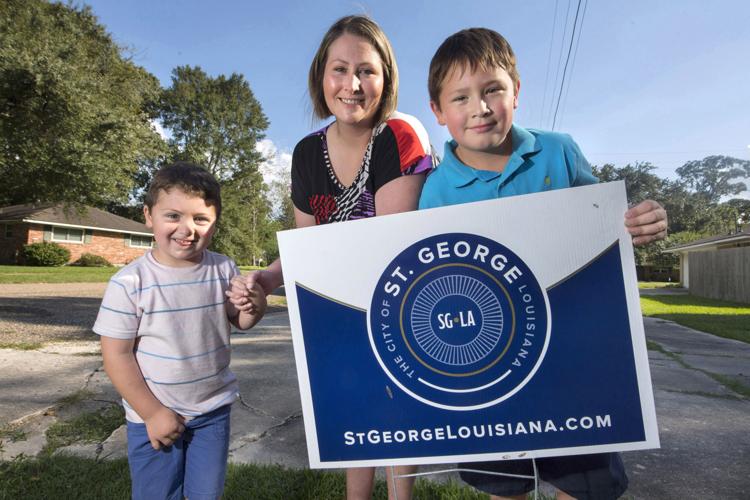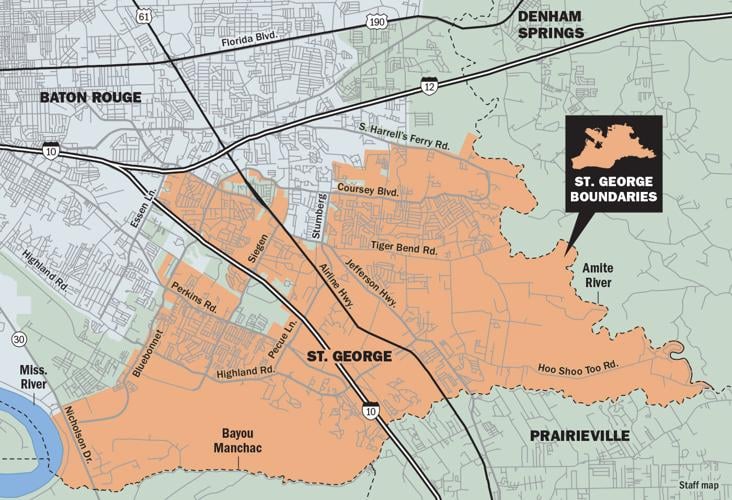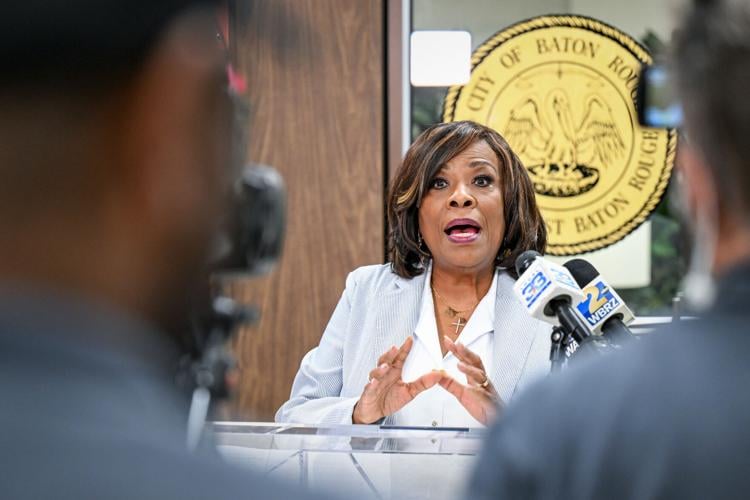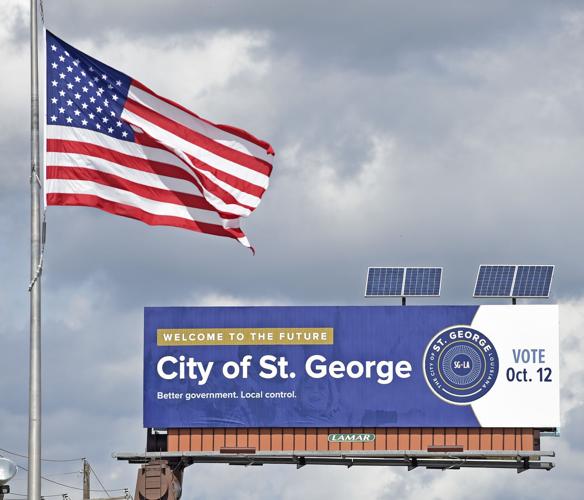The Louisiana Supreme Court ruled Friday to allow the City of St. George to move forward with plans to incorporate, a monumental decision for Baton Rouge and possibly the end to a decade-long battle over the creation of the new city.
Louisiana’s highest court ruled in St. George’s favor by a four-to-three vote, saying the incorporation was carried out in a lawful and reasonable manner and that there was “legal error” in lower court rulings that sided with Baton Rouge leaders. The opinion was authored by Justice William Crain.
“In considering ‘reasonableness,’ we recognize our constitution and statutory scheme allows for and favors incorporation,” Crain wrote. “The Louisiana Constitution protects individual rights, including the right to incorporate.”
The new City of St. George will include at least 86,000 residents across a 60-square-mile area in the southeast corner of East Baton Rouge Parish, making it one of the largest cities in the state — on par with Lake Charles and Kenner. Several businesses located within St. George’s original boundaries were annexed into Baton Rouge so as not to be included in the new city.

Andrew Murrell, a spokesman for St. George, said a St. George transition district will work to ensure a smooth transition.
Gov. Jeff Landry will appoint an interim mayor for the City of St. George, along with five council members. Following the first term, St. George residents will vote for the new mayor and city council.
The proposed city will continue to use the St. George Fire Department and East Baton Rouge Parish Sheriff’s Office for fire and police services.
The ruling was the first big victory for St. George since it won its election to incorporate in 2019 with 54% of the vote, which included residents within St. George’s boundaries.

St. George residents celebrate their recent emancipation at an election night party on Saturday night held at City Cafe in Baton Rouge.
The St. George movement had preceded that election by a decade — it originally started as a push to create a separate, independent school district before evolving over the years into a full-fledged campaign for a new city.
“It’s a culmination of over 13 years of volunteers, hard work, dedication and donations,” Murrell said. “They dedicate their time and money and go to court hearings in New Orleans in the middle of the day. It really is the culmination of them wanting something better.”
Supporters of the new city argued the city-parish government is poorly run and that they should have more localized control of tax dollars.

Years after voters approved a new City of St. George, a Louisiana Supreme Court ruling allows incorporation to move forward.
Mayor-President Sharon Weston Broome and Mayor Pro Tem Lamont Cole sued St. George organizers soon after the election. They argued that the new city would drain $48 million in annual tax revenue from the city-parish government, stifling city-parish services and triggering layoffs of its employees.
They also claimed that St. George’s proposed budget was inaccurate and that it would actually operate with a deficit from day one.
But the state Supreme Court pushed back on those claims, stating that those calculations were inaccurate and that St. George’s budget was balanced and would provide public services within a reasonable amount of time. It later added that “a decrease in funding to the city-parish does not necessarily result in an unreasonable adverse impact,” and that Baton Rouge failed to consider cost savings in its arguments.
The ruling also said St. George had a “thriving business community” with a separate identity from Baton Rouge.
Lower courts have sided with Baton Rouge and shot down the proposed city — once in 2022, when a district judge ruled that St. George couldn’t operate with a balanced budget and was “unreasonable,” and again last year when the First Circuit Court of Appeal ruled that St. George organizers had not followed state law for getting on the election ballot. The appeals court also removed Broome from the lawsuit for lack of standing.
Broome expressed disappointment at the court’s ruling but plans to cooperate with St. George’s leaders. She will work in the coming days to “determine the best course of action” in response to the court’s ruling.
“My goal from the very beginning, and it has always been my goal, is to advocate for a united Baton Rouge,” Broome said in a news conference Friday. “I am committed to serving the residents of St. George, just as I served those of Baker, Central and Zachary.”

Mayor-President Sharon Weston Broome speaks in a press conference Friday afternoon in response to the Louisiana Supreme Court’s ruling in favor of the controversial proposed City of St. George at City Hall on April 26, 2024.
Broome added that Friday’s ruling emphasizes the need for “continued leadership” as Baton Rouge nears its mayoral election this fall. Broome is running for her third and final term, and St. George voters will be able to vote in her election because of her role as president of the parish.
Cole did not respond to a request for comment, and his attorney deferred comments to Broome.
The only remaining legal move Baton Rouge leaders have is to request a rehearing from the Louisiana Supreme Court, according to Broome, although it wasn’t immediately clear Friday if Cole would do so.
Councilman Dwight Hudson, who represents the area of St. George and has been a staunch supporter, was elated by Friday’s ruling and hopes the new school district that has been in the works for years comes to fruition. But he predicts that negotiations between St. George and Broome may prove difficult considering the years of legal tension.
“Just over the years, there was a total unwillingness to talk or to really have any kind of productive conversations," Hudson said. "It’s going to be really tough for her to repair some of those relationships.”
Murrell said St. George is ready to work with Baton Rouge leaders to move forward with the incorporation.
Councilman Cleve Dunn Jr. said Friday he was in full support of requesting a rehearing on the matter. Councilwoman Chauna Banks declined to comment, while other council members did not respond to requests for comment.
Chief Justice John Weimer, Justice Scott Crichton and Justice Piper Griffin dissented from the court’s opinion. Weimer agreed with the appeals court ruling that St. George’s petition to get on an election ballot was insufficient.
“The decision in this case achieves a result masquerading as an opinion,” Weimer wrote. “Disappointingly, the majority opinion deploys a procedural ruse to avoid evaluating whether there has been compliance with a statute that requires ‘full compliance’ with its provisions.”

Drivers on Siegen Lane approaching Airline Highway are greeted by billboards for and against the City of St. George the Friday before Election Day, October 11, 2019, in Baton Rouge, La.
Other opponents of St. George have argued that the movement is inherently racist as it seeks to pull tax dollars from a White and affluent portion of the parish away from a majority Black city and school district. Murrell said that argument has never been proven or adjudicated by a judge.
“I think it’s disrespectful to minorities to tell them that St. George is racist because we want something better, then that must be insisting that they do not,” Murrell said.
The proposed city garnered national attention over its decade-long life span, including a PBS “Frontline” special in 2014 and spotlights in national publications like The New York Times, Bloomberg and The Atlantic.
Staff writer James Wilkins contributed to this story.













